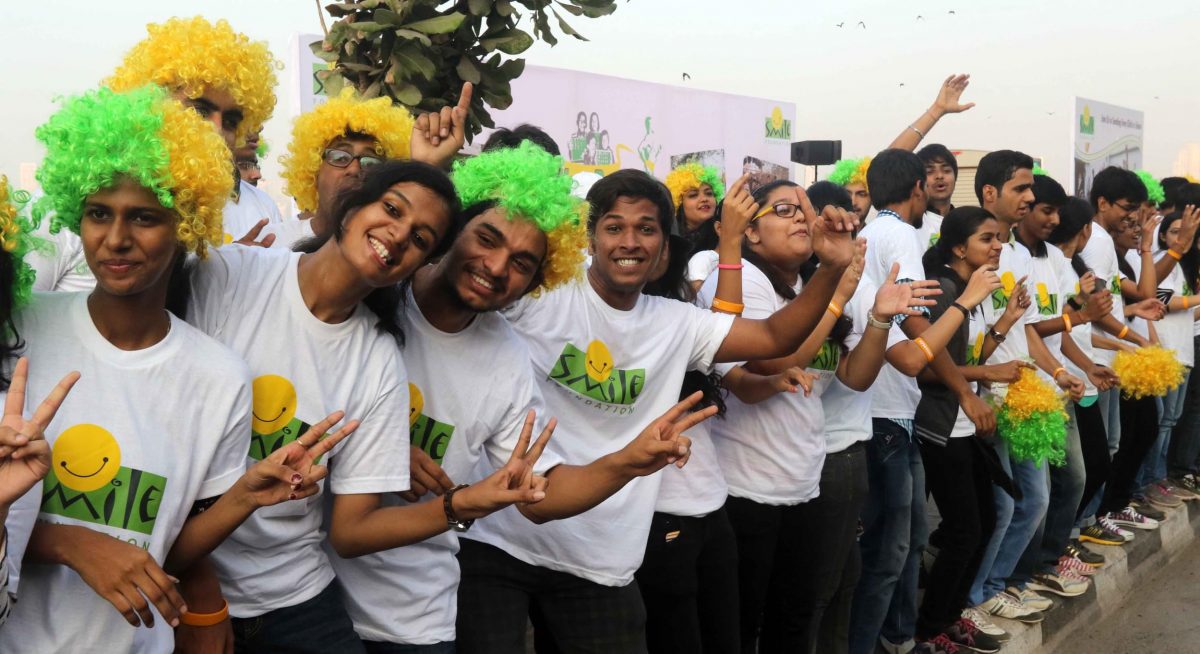At the 1896 Olympics in Athens, the first organised marathon involved only 17 athletes. Marathons have come a long way since then. The winner ran a time of 2:58:50 – a respectable time for an amateur today but almost an hour slower than the fastest runners.
So, why are the races so popular?
With no hopes of winning a gold medal or getting one’s name etched in sports history books, some may wonder why people run marathons at all. The training requires a major commitment of time, energy, and sweat, and the races can be grueling.
Yet despite that, marathon participation all over the world has risen significantly since 1980, and applications for marathons in India have grown exponentially.
The most obvious reasons why people run them are the positive health and mental well-being effects. While some people worry about the harm you can do to your body if unprepared, the overall health benefits tend to significantly outweigh any risks with proper training. The benefits of weight loss and cardiovascular health are well known, but research is continually unveiling new upsides. Running marathons cuts years off your “artery age,” and a recent study showed a possible relationship between improved cognitive function and greater eye health as a result of marathoning.
But what about the psychological motivations?
Each runner will give you different answers.
Some look forward to the feeling of accomplishment they get crossing the finish line which keeps them coming back. There is a surge to it they don’t get from other sports, because the sheer amount of time and effort that goes into a single marathon dwarf that of an individual soccer game or tennis match. Can they push themselves through enough hell to finish is the only question?
Some mainly run because it is a way to experience other cultures. It’s how they explore the world and they firmly believe one of the best ways to experience a new city is on their marathon day.
However, while every runner has different personal reasons, there are some general trends that researchers have observed underpinning people’s attraction to racing over long distances. A study found that “proving the ability to run a marathon race constituted an important life event for a person” and that it could impact their beliefs about the successful execution of potential future achievements.
Another study found that aspects of daily life are tangibly and measurably mirrored in marathon running, such as the tracking of progress, along with the necessity of productivity and efficiency. Across the paper’s interview subjects, runners tended to cite three primary motivators: freedom, achievement, and competition.
But less obviously, the paper also suggests endurance running can also be a way of gaining social status. Showing you are capable of a long-distance race projects qualities of health, productivity, and efficiency to others, she argues, akin to cultivating a personal brand. This effect is only supercharged through social fitness apps that allow runners to share their achievements.
Marathon runners might not all get medals, but they do win a measure of social status. A final commonly cited motivation for running long-distance is the feeling that follows – the so-called “runner’s high.”
So, what exactly is going on in the brain of marathon runners?
It’s commonly thought that hormones called endorphins play a role, but the calm, relaxed feeling that some people report may instead be due to a rise in endocannabinoids in the bloodstream. Unlike endorphins, these can pass into the brain.
During long-distance running, the brain may also dilute the memory of pain. In 2019, a study drew parallels between the pain from giving birth and from marathon running. Both tend to be underestimated when later recalled, which may be explained by the release of oxytocin in the brain which influences how the memory is encoded, say the researchers. The way pain is remembered is also viewed through the context: if a marathon medal or a baby is on the other end of the pain endured, one may regard the extent of the pain differently.
This may help to explain why “repeat marathoners” are common and they have committed to running at least one marathon a year, and many have run with a family member by their side.
Smile Foundation and TCS Bengaluru Marathon 2024
Participating in the Bengaluru Marathon, either individually or as part of a corporate team, offers a diverse range of benefits. For individuals, it promotes physical health, mental well-being, and a sense of personal achievement. The event serves as a platform for community engagement, fostering connections and inclusivity among participants. Corporate partnerships enhance team-building through shared training experiences, contributing to a positive work environment.
Moreover, the Bengaluru Marathon aligned with charitable causes, allows participants to make a social impact. The Bengaluru Marathon offers a holistic experience that extends beyond running, encompassing physical health, community building, personal growth, social impact, and environmental awareness. It stands as a testament to the transformative power of running and community engagement. Register for the Bengaluru marathon today and help children imagine a different, better life for themselves.



